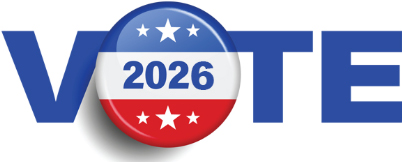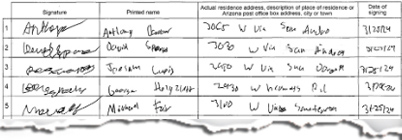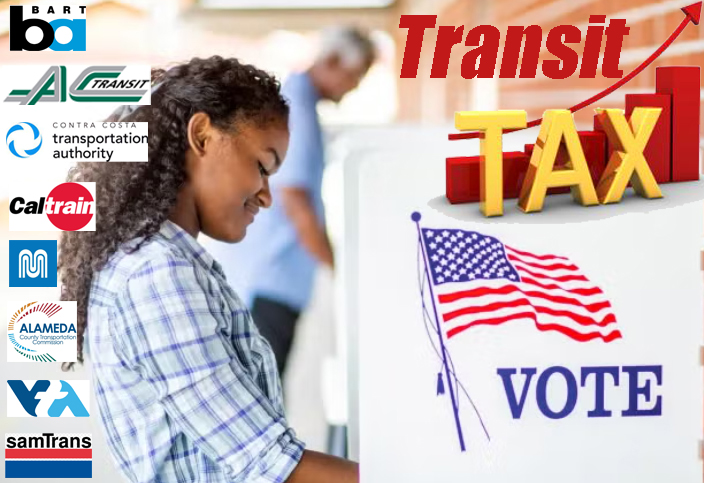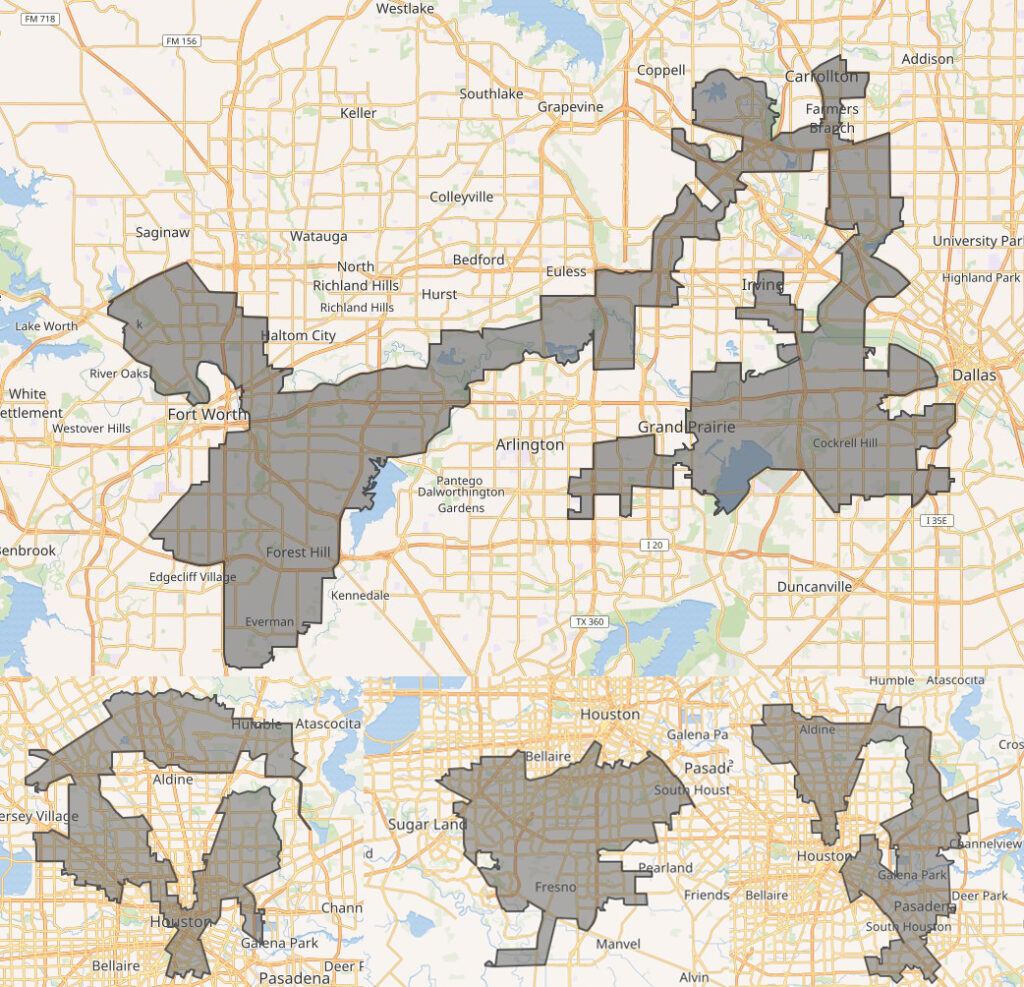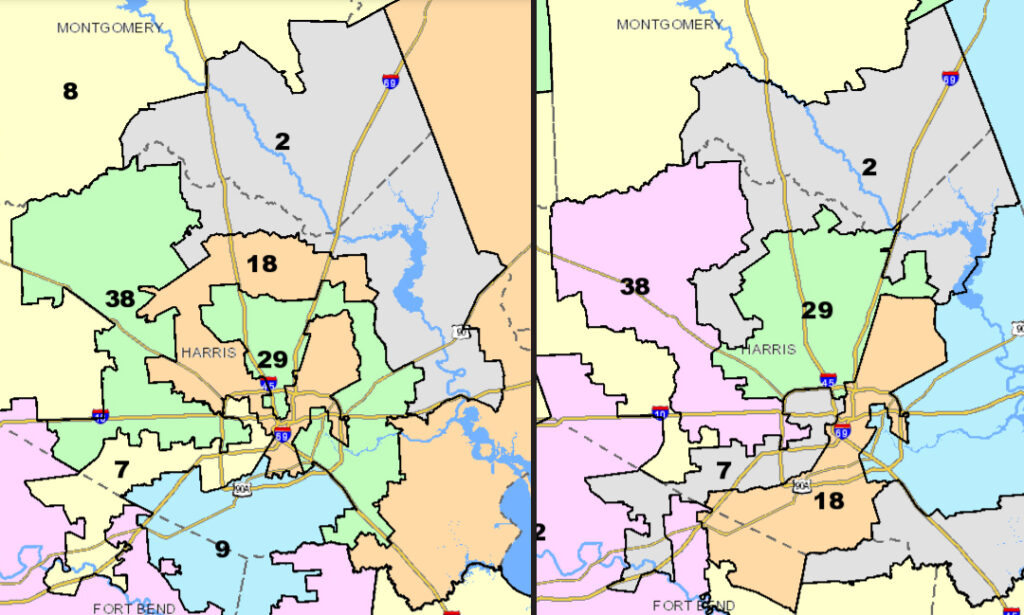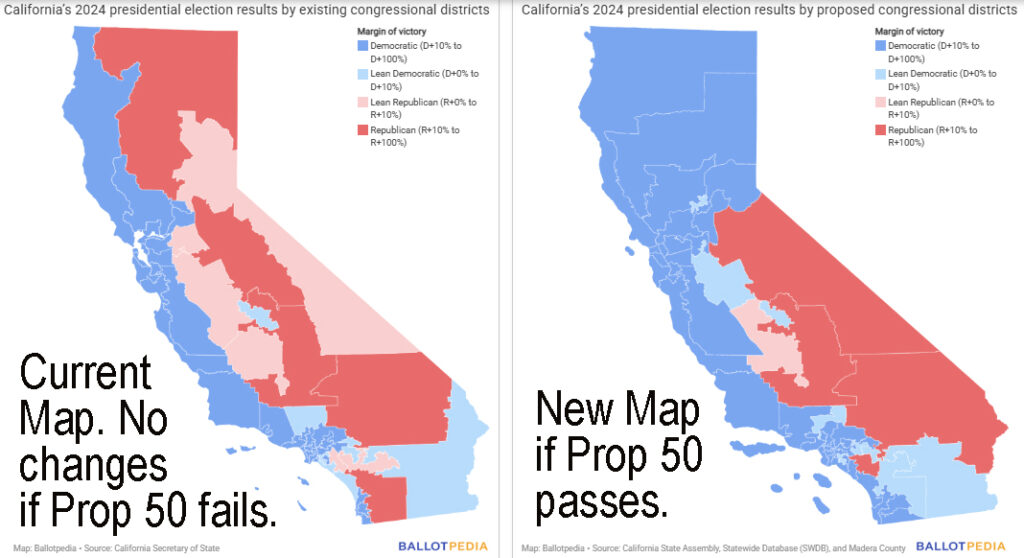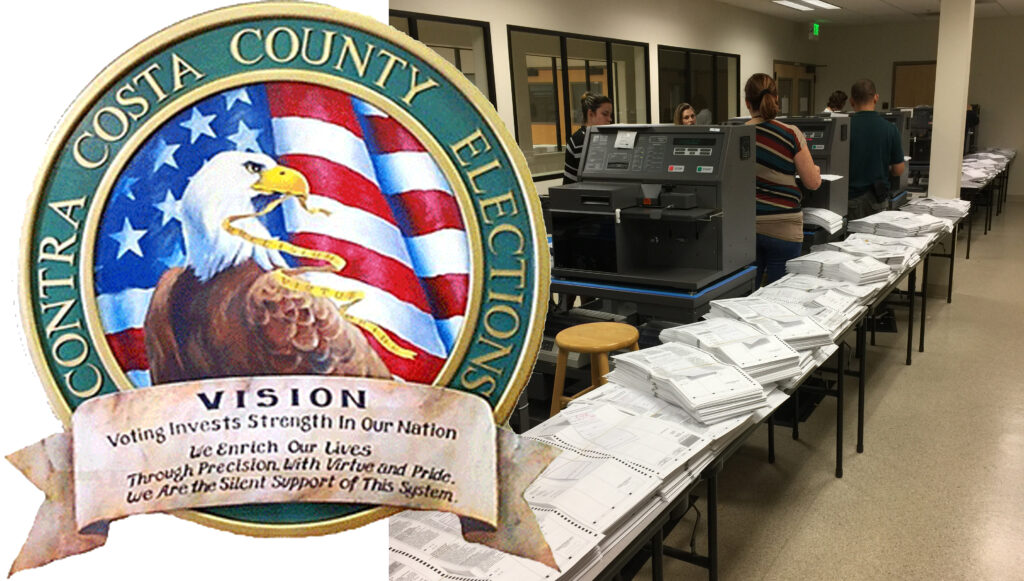Connect Bay Area campaign raises nearly $3 million to support signature gathering for regional transit tax measure
Thursday, January 15th, 2026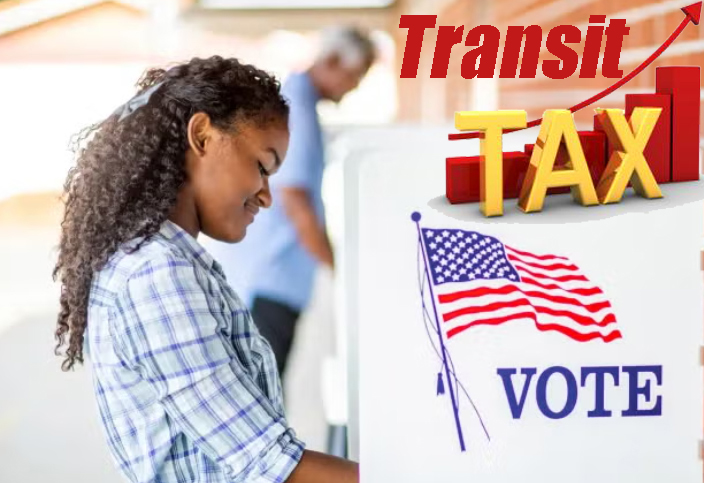
Businesses, labor unions, civic foundations join effort for 5-county Nov. 2026 ballot measure to prevent threatened catastrophic transit service cuts, promote reliable, safe public transit
Includes Contra Costa; would generate about $1 billion per year
SAN FRANCISCO BAY AREA, CA — The Connect Bay Area Transit committee today announced that it has already raised nearly $3 million to support a region-wide effort to qualify Connect Bay Area, a voter-proposed regional transportation funding measure, for the November 2026 ballot. With strong early financial backing secured, the campaign will now begin signature gathering while continuing to fundraise to qualify and pass a five-county sales tax to save public transit.

About the Tax Measure
The measure if adopted would increase the sales tax in Contra Costa, Alameda San Mateo and Santa Clara Counties by a half cent and one cent in San Francisco County for 14 years. As previously reported, the measure would generate approximately $980 million annually across the five counties.
Revenue from the tax measure will benefit multiple transit agencies in the region including Tri Delta Transit, County Connection and WestCat, as well as AC Transit and BART which serve Contra Costa County residents.
Following is a county-by-county breakdown of the County Specific Dollars. It does not include money going to BART, Muni, AC Transit and Caltrain, or to regional improvements that aren’t designated by county, such as coordinated fare programs and accessibility improvements.
County Agencies:
- Contra Costa County Transportation Authority (2.5%, $26.51M)
- Alameda County Transportation Commission (1%, $10.26M)
- San Mateo County Transit District (4.7%, $50M)
- Santa Clara Valley Transportation Authority (25.1%, $264.07M)
Small Operators:
- Contra Costa County small operators (1.5%, $15.75M)
- Alameda County small operators (0.5%, $5.25M)
- SF Bay Ferry (0.7%, $7M)
- Golden Gate Transit (0.1%, $1M)
Without new and sustainable operations funding, the Bay Area will face a true emergency:
● BART: Could shut down two of its five lines, reducing service from 4,500 trains per week to just 500, with trains running only hourly and no weekend service.
● AC Transit: Would reduce service by 37%, bringing operations down to just half of pre-pandemic levels.
● Muni: Would face 50% cuts to all bus and Metro lines, including elimination of entire neighborhood routes and San Francisco’s iconic historic trolleys and cable cars.
● Caltrain: Trains would run only once per hour, end service by 9 p.m. on weekdays, and eliminate all weekend service.

The Connect Bay Area measure will support the future of public transportation in the Bay Area:
● Protect and improve service on BART, Muni, Caltrain, SamTrans, VTA and AC Transit
● Prevent catastrophic service cuts that could devastate the Bay Area
● Keep traffic and emissions down, preventing gridlock and protecting climate progress;
● Support the Bay Area’s economy, ensuring that downtown recovery and regional mobility remain strong.
The Connect Bay Area Transit measure will include strong accountability provisions. This ensures new funding delivers real improvements, not just short-term fixes. Transit agencies must:
● Independent financial review and cost-efficiency: Operators will undergo a third-party financial review and be required to improve financial efficiency and use public funds wisely
● Better regional coordination to benefit riders: Operators will be required to comply with MTC’s Regional Network Management Policies to coordinate across systems and simplify fares and signage to create a more seamless experience for riders.
● Oversight Committee: An oversight committee will ensure that the expenditure plan is adhered to and hold MTC and operators accountable to all provisions of SB63.
About the Campaign
The campaign’s initial fundraising success reflects broad alignment across business, labor, philanthropy, and community leaders that a reliable, safe, and efficient public transportation system is vital to the future of the Bay Area. Major early donors include Chris Larsen, Herzog Contracting Corporation, Genentech, HNTB Corporation, Meta, and SEIU 1021. For a full list of donors, see below.
“Public transportation connects everyone. We are proud of the broad coalition uniting to prevent catastrophic service cuts and to build an affordable, safe, and efficient public transportation system,” said Jeff Cretan, a spokesperson for the Connect Bay Area Transit Committee. “The commitments we are seeing from business, labor, and civic leaders shows that everyone is ready to get this measure across the finish line in November.”
Connect Bay Area is a five-county regional tax measure designed to prevent catastrophic transit service cuts and provide reliable operating funding for major transit systems and local bus operators throughout the region. The measure also funds improvements to transit systems, capital projects within counties, and targeted road improvements. The measure is critical to supporting the Bay Area’s economy, promoting an affordable region, reducing traffic congestion, and ensuring access to jobs, schools, and healthcare.
Early financial support for the campaign includes commitments from:
- Chris Larsen
- Herzog Contracting Corporation
- Genentech
- HNTB Corporation
- Meta
- SEIU 1021
- Jacobs
- Silicon Valley Community Foundation
- ATU Local 1555
- PG&E
- San Francisco Foundation
- WSP
- Golden State Warriors
- AFSCME Local 3993
- Boston Properties
- Visa
- AFSCME Council 57
- T.Y. Lin
- GILLIG
- HDR, Inc.
- Fehr & Peers
- AFSCME 3916
- Arup North America
- Olson Remcho
Additional major employers, labor organizations, and philanthropic partners have indicated commitments that are expected to be finalized as the campaign continues to build momentum.
With signature gathering starting, the Connect Bay Area campaign will focus on qualifying the measure for the ballot while continuing to expand its coalition across the region. The Campaign must secure over 186,000 signatures from the five counties by June 6, 2026 to qualify for the November ballot.
The campaign’s early momentum comes as Bay Area transit agencies face an unprecedented funding crisis. Without a sustainable solution, public transportation in the the region could see devastating impacts, including:
- BART could eliminate 2 full lines, stop service at 9pm on weekdays, and eliminate all weekend service.
- Muni could eliminate entire routes, make 50% cuts to major bus and metro lines, gut historic train and cable car service.
- Caltrain could cut weekday service to once an hour, stop service at 9pm on weekdays, and eliminate all weekend service.
- AC Transit could cut up to 37% of overall service.
Recent polling on the proposed Connect Bay Area measure shows a clear path to passage, with strong support across counties and voter demographics. A survey conducted by EMC Research for the Metropolitan Transportation Commission found that 59% of Bay Area voters would support a proposed regional sales tax measure for public transportation. The threshold for passage for a signature-gathering initiative is 50%+1.
For more information about Connect Bay Area, visit ConnectBayArea.com.
About the Connect Bay Area Transit Committee
The Connect Bay Area Transit Committee is led by labor, business, and transit supporters, including the Bay Area Council, SEIU 1021, ATU 1555, SPUR, SAMCEDA, among others, as well as a broad advocacy council. The advocacy council includes more than 20 organizations including transit advocates, housing advocates, safe streets advocates, senior and disability advocates, and environmentalists. The Committee is focused on delivering a successful 2026 ballot measure that will strengthen public transportation to keep the Bay Area affordable for residents and support critical economic growth and climate resilience.
Allen D. Payton contributed to this report.











